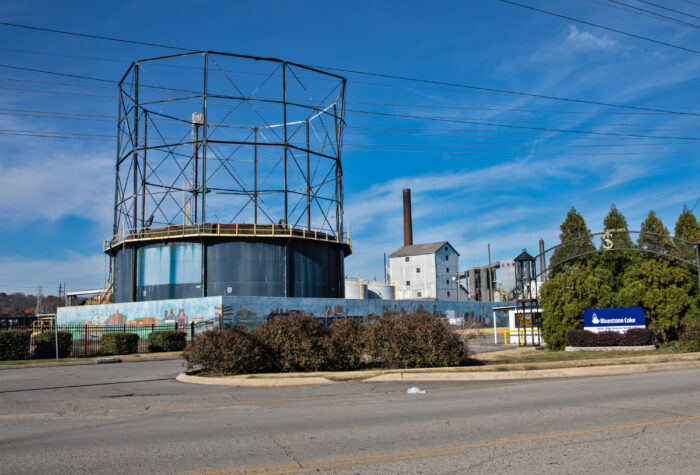We just secured a nearly $1 million penalty against a north Birmingham polluter
In an unprecedented step to improve air quality for Birmingham residents, a polluting facility that has impacted the health and quality of life for predominately Black neighborhoods for years will now pay a $925,000 penalty — the largest fine issued in the Jefferson County Department of Health’s 105-year history.

SELC, on behalf of GASP, and the Jefferson County Department of Health, filed a consent decree outlining penalties and new monitoring requirements for Bluestone Coke. It was signed by all three parties and submitted to a Jefferson County circuit court for approval last week.
“Residents of Harriman Park, Fairmont, and Collegeville have been exposed unjustly to toxic and visible air pollution for far too long. This agreement will finally give community members a chance to breathe easier and an opportunity to weigh in on how this penalty should be spent,” says GASP Executive Director Michael Hansen. “This consent decree makes it clear that companies like Bluestone Coke cannot continue to pollute without consequences, and that starts with standards that put people — not profits — first.”
Half of the nearly $1 million penalty fee will go to the Sustainable Residential-Industrial Buffers Fund to be spent on green spaces, the removal of blighted property, and other environmental improvement projects in the communities adjacent to Bluestone’s plant, including Collegeville, Harriman Park, and Fairmont. The public will have an opportunity to weigh in on funding decisions for specific projects at a public hearing as well as through a comment period.
These measures follow years of citations from the Jefferson County Department of Health for serious violations of Bluestone’s permit — including hazardous emissions from leaking coke ovens at the plant. In 2019 and 2020, ambient air samples GASP and SELC collected around the Bluestone Coke plant showed elevated levels of benzene and naphthalene, two toxic air pollutants associated with coking.
We commend the community members of Harriman Park, Fairmont, and Collegeville for bravely standing up for the right to breathe clean air and demanding a better quality of life for their families.
Sarah Stokes, SELC Senior Attorney
The plant is currently idled. Per the consent decree, if and when Bluestone attempts to reopen, two monitors would have to be installed on the fence line to monitor sulfur dioxide, an irritant toxic to the human respiratory system, for five years. The fence line of Bluestone’s property is a confirmed sulfur dioxide hotspot based on Environmental Protection Agency modeling.
“After years of violating its air pollution permit, Bluestone Coke must be held accountable for its actions,” says Sarah Stokes, a senior attorney in SELC’s Alabama office. “We commend the community members of Harriman Park, Fairmont, and Collegeville for bravely standing up for the right to breathe clean air and demanding a better quality of life for their families.”
Bluestone would also be required to submit more rigorous documentation of compliance in its permit application, including a Corrective Action Plan written by a licensed engineer, which would also be subject to public comment. Additionally, Bluestone would have to hire an independent auditor to ensure bimonthly compliance at the plant for two years.
The consent decree also states that GASP will have the power to enforce the terms if Bluestone violates the agreement and requires any potential future purchaser of the plant to comply with the requirements.
